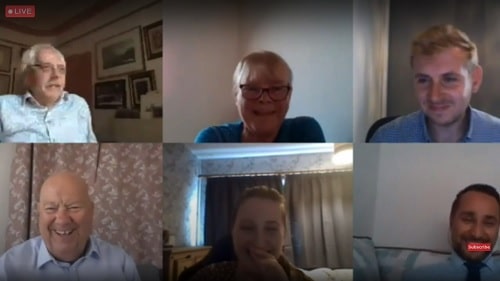Councillors scrutinise Mayor of Liverpool after 2 year scrutiny review into how developments in Liverpool were financed
Please accept YouTube cookies to play this video. By accepting you will be accessing content from YouTube, a service provided by an external third party.
If you accept this notice, your choice will be saved and the page will refresh.
Regeneration and Sustainability Select Committee (Liverpool City Council) 12th August 2020

By John Brace (Editor)
and
Leonora Brace (Co-Editor)
First publication date: 13th August 2020, 11:31 (BST).
Yesterday (12th August 2020) Liverpool City Council held a public meeting of its Regeneration and Sustainability Select Committee to discuss the outcome of a 2 year scrutiny review looking into the obscurely named topic of fractional investment.
The public meeting included those two well-known figures of Liverpool City Council politics, Mayor Joe Anderson and Cllr Richard Kemp (who it will not come as a surprise don’t agree as to Liverpool City Council’s approach).
Cllr Richard Kemp is leader of the 10 Liberal Democrat councillors on Liverpool City Council (which is an opposition group), whereas Mayor of Liverpool Joe Anderson is leader of the 73 Labour Party councillors (who are the majority ruling group) and the relevant Cabinet Member.
The two are known for their differences of political opinion which has been part of the political landscape at Liverpool City Council.
The Fractional Investment Scrutiny Panel (basically a subcommittee of its parent Committee the Regeneration and Sustainability Select Committee) was asked to examine the fractional investment model and heard evidence from a number of people (some behind closed doors). After two years it has made a series of 11 recommendations. Some of the changes are for Liverpool City Council to make, which include greater openness and transparency such as more information in this area being routinely supplied to Liverpool City Council politicians in the future, other recommendations are not mainly about Liverpool City Council but about the wider framework of checks and balances. The 21 page report can be read in full on Liverpool City Council’s website.
In years gone by, Liverpool City Council have actively sought through foreign trade missions to encourage foreign inward investment in Liverpool involving developments.
As discussed at the public meeting, Liverpool City Council is now keen to make clear it does not regard this as endorsement, although this belated clarity has unfortunately come too late for those who invested (and lost) money based in part because they believed that Liverpool City Council did endorse these developments.
Liverpool’s reputation as a city has unfortunately been tarnished internationally as a result, but how did it end up at this stage?
The report indeed details the weak controls and lack of enforcement of existing laws in UK society, which have unfortunately led to this scandal.
Indeed, those with long memories such as the author of this piece will briefly comment on the Barlow Clowes scandal of the 1980s. Then around 18,000 customers invested money believing it had been invested without risk, many losing their life savings causing hardship. A report published then by Barrowclough concluded that the Department of Trade had committed five acts of maladministration and eventually the Government had to compensate investors (most were refunded to 90% of their original investment) which cost the taxpayer around £150 million. However, this is merely included as a historical or academic point and merely included in this piece – it is not meant in any way as a comparison to events today as due process has to be allowed to run its course.
However, moving back to the events of the 2020s, rather than the 1980s, it is however clear that a large number of people feel unfairly treated by what has gone on and as discussed at the meeting itself, the political discussion has moved to what happens next, as indeed the ins and out of what happened is now a matter of historical record.
The Committee agreed the recommendations which will be discussed at a future meeting of Liverpool City Council’s Cabinet.
If you click on any of the buttons below, you’ll be doing me a favour by sharing this article with other people.
Many thanks John for your excellent work despite the obstacles being placed when live streaming
Thanks for your comment.
Well one does wonder when Liverpool City Council published the link to watch it minutes before it started how keen Liverpool City Council are on openness and transparency.